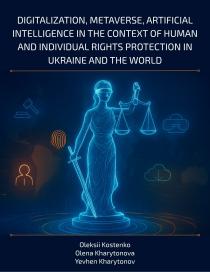PSYCHOLOGICAL RESEARCH IN METAVERSES: THE PERSONAMATRIX MODEL
Synopsis
This paper explores the concept of digital simulacra as functional psychological models of personality, synthesized from mental patterns derived from key psychological traditions—psychoanalysis, Gestalt therapy, and Jungian analytical psychology. These models are not literal digital copies of individuals but rather complex representations of underlying psychic structures, with an expert-assessed correspondence of 60–70% (Drobakha, 2024). They simulate characteristic human response patterns, particularly under stress, interpersonal conflict, and adaptive challenges. The model emphasizes psychodynamic patterns—behavioral templates shaped by personality typology, psychic organization levels, modes of contact formation and disruption, and stress indices—rather than emotional attributes like empathy or affective resonance (McWilliams, 2011; Drobakha, 2024).
The paper presents PersonaMatrix, an interdisciplinary framework formalizing psychological aspects via digital agents (simulacra), applicable in therapeutic, educational, and social domains. The PersonaMatrix model integrates psychoanalytic classifications, Gestalt contact cycle theories, and Jungian archetypal interactions to provide a nuanced and dynamic digital representation of personality. Empirical data from a comprehensive study involving a sample of 1,000 participants from diverse demographic backgrounds demonstrate a diagnostic accuracy of up to 87%, highlighting the model’s efficacy and reliability. Results underline the model’s significant potential for personalized digital interaction, enabling realistic simulation of psychological behaviors, adaptive responses to varying stress levels, and detection of latent internal conflicts through dynamic archetypal shifts (PersonaMatrix, 2024). The findings suggest broad practical implications for enhancing virtual psychological interventions, adaptive training programs, and personalized digital support systems within increasingly prevalent virtual environments.










